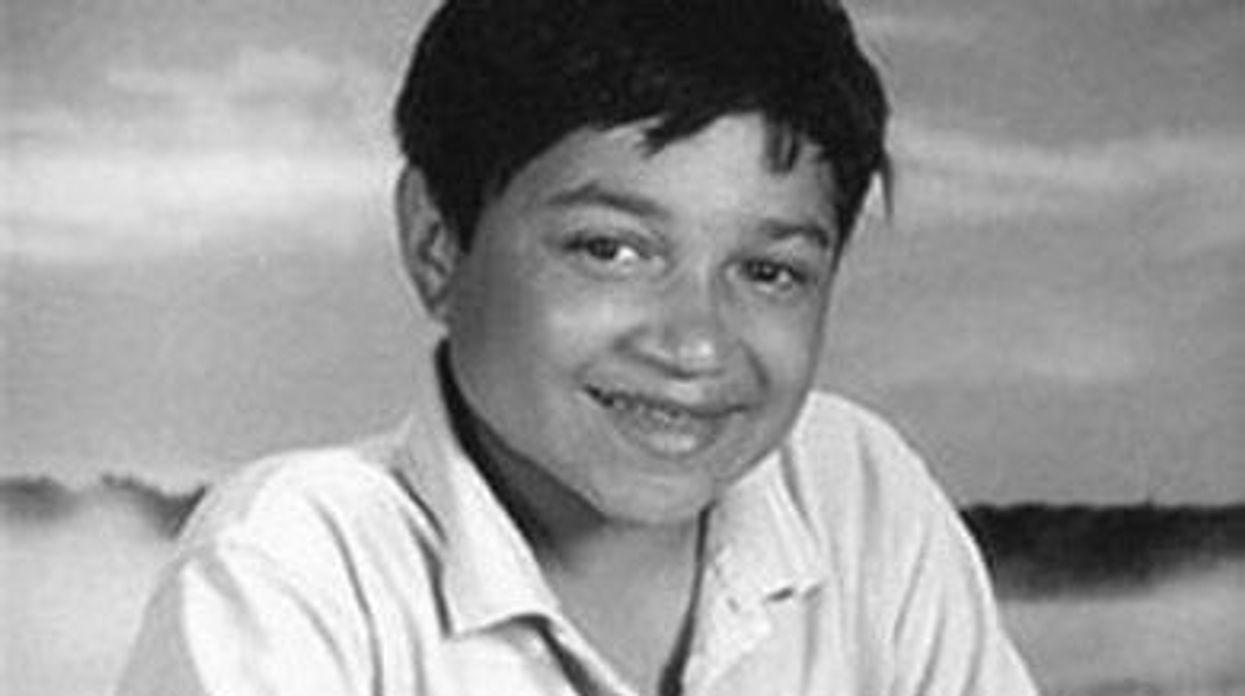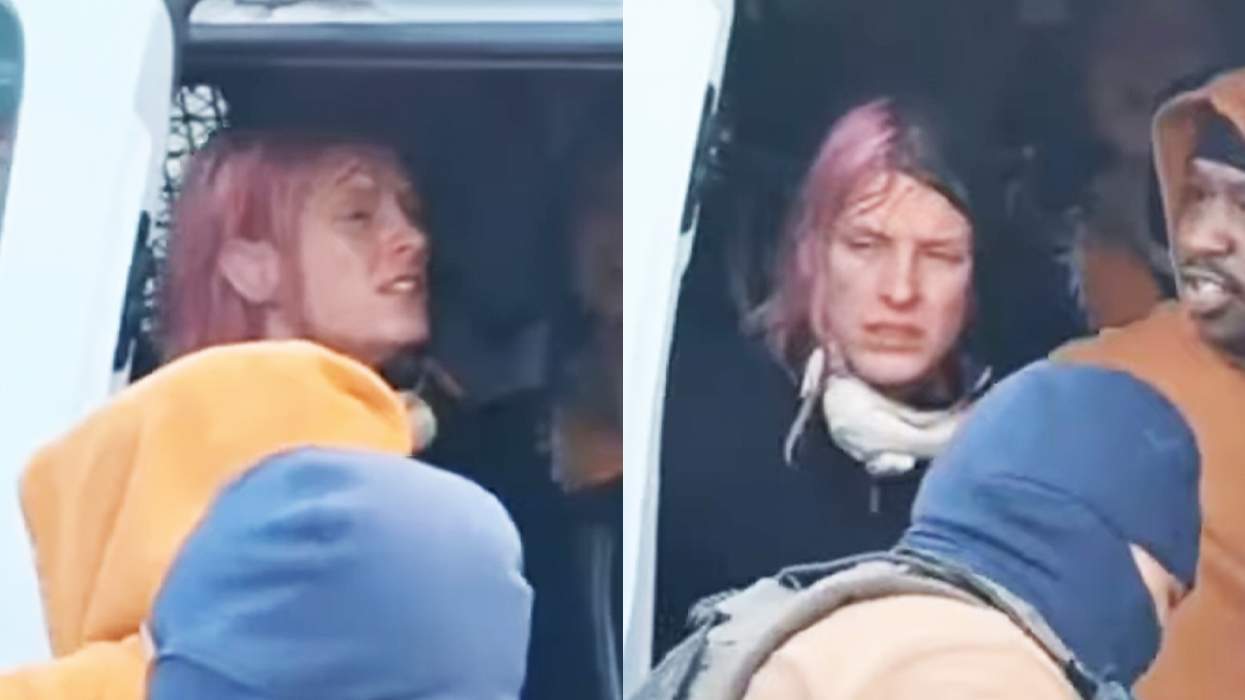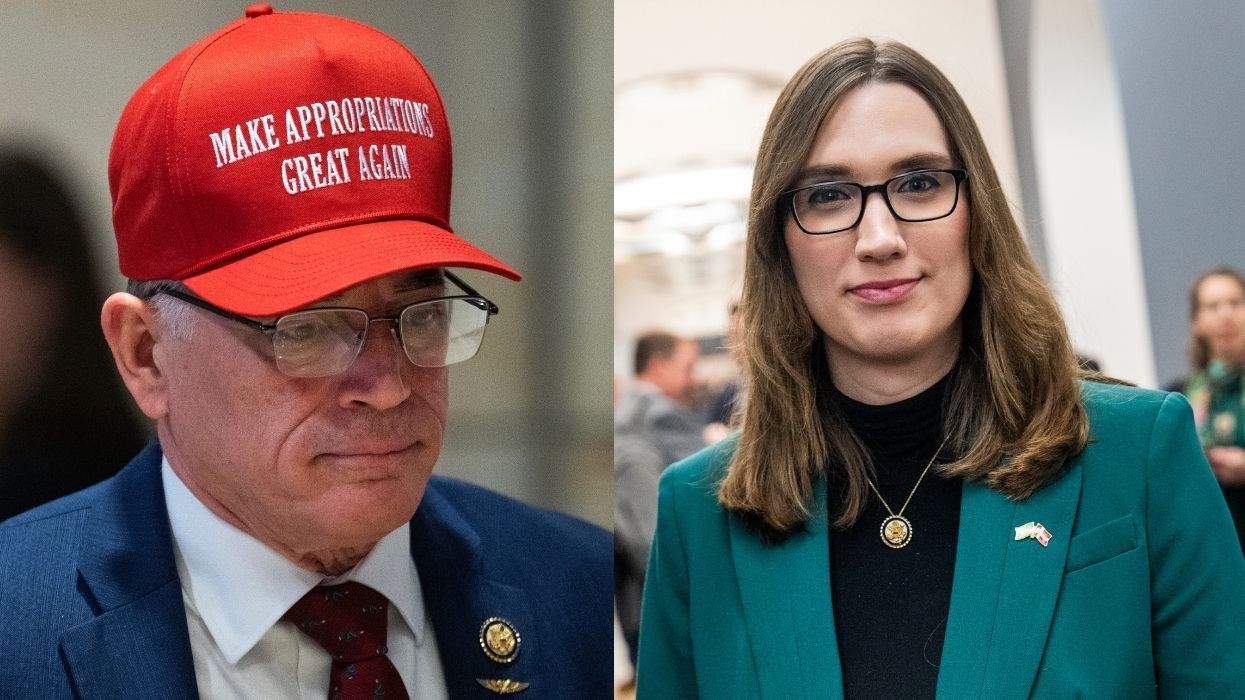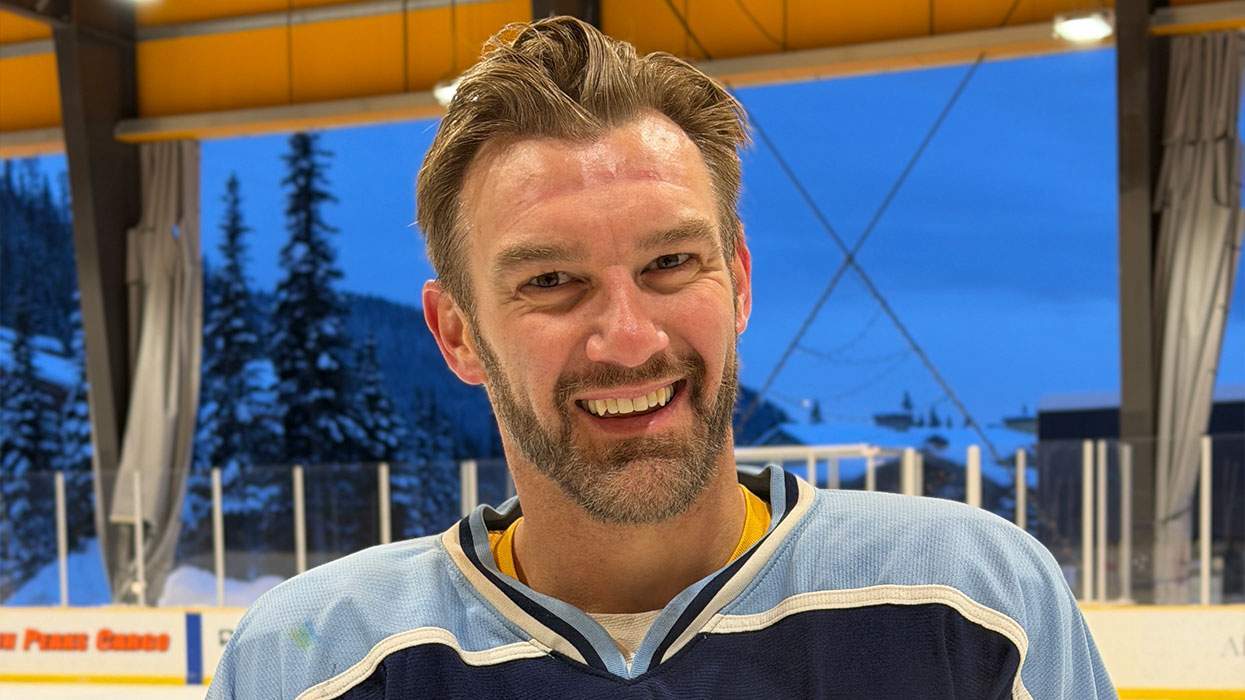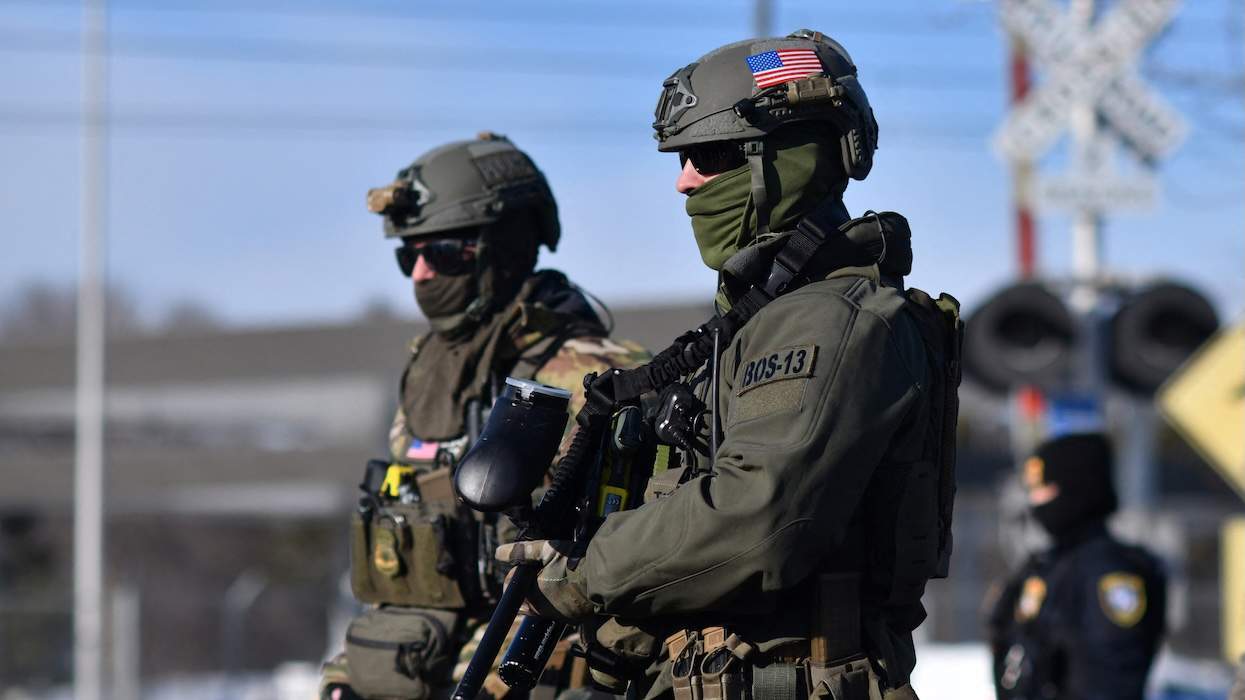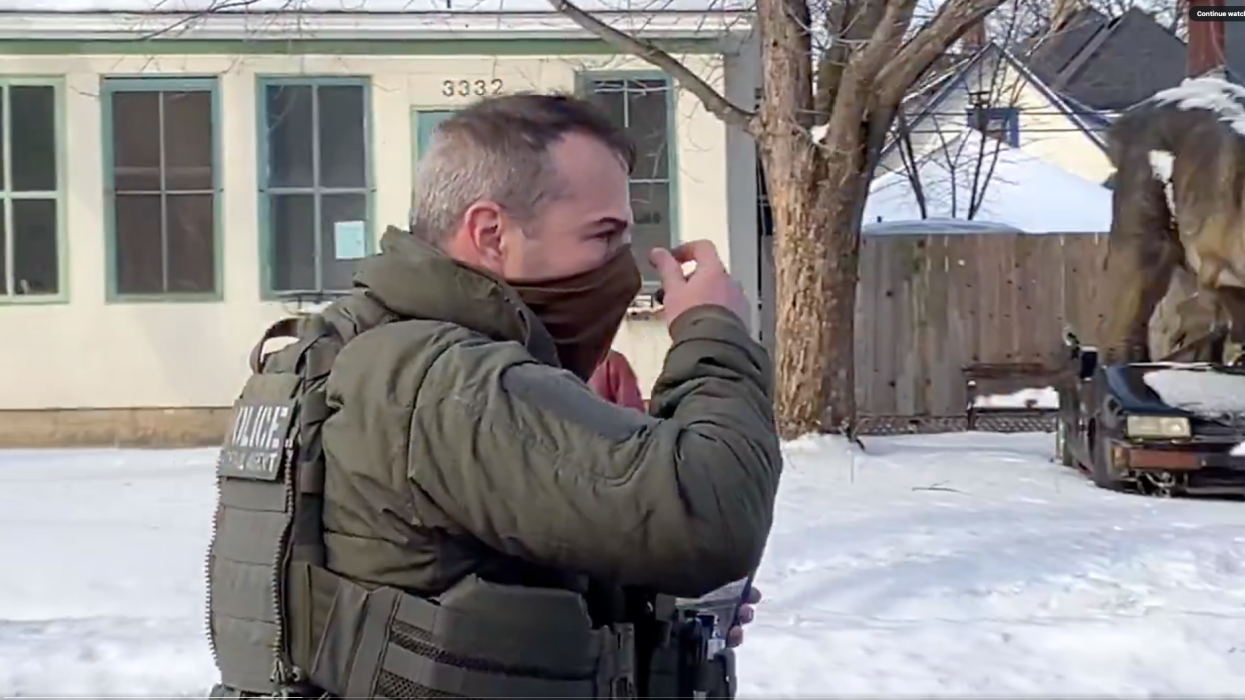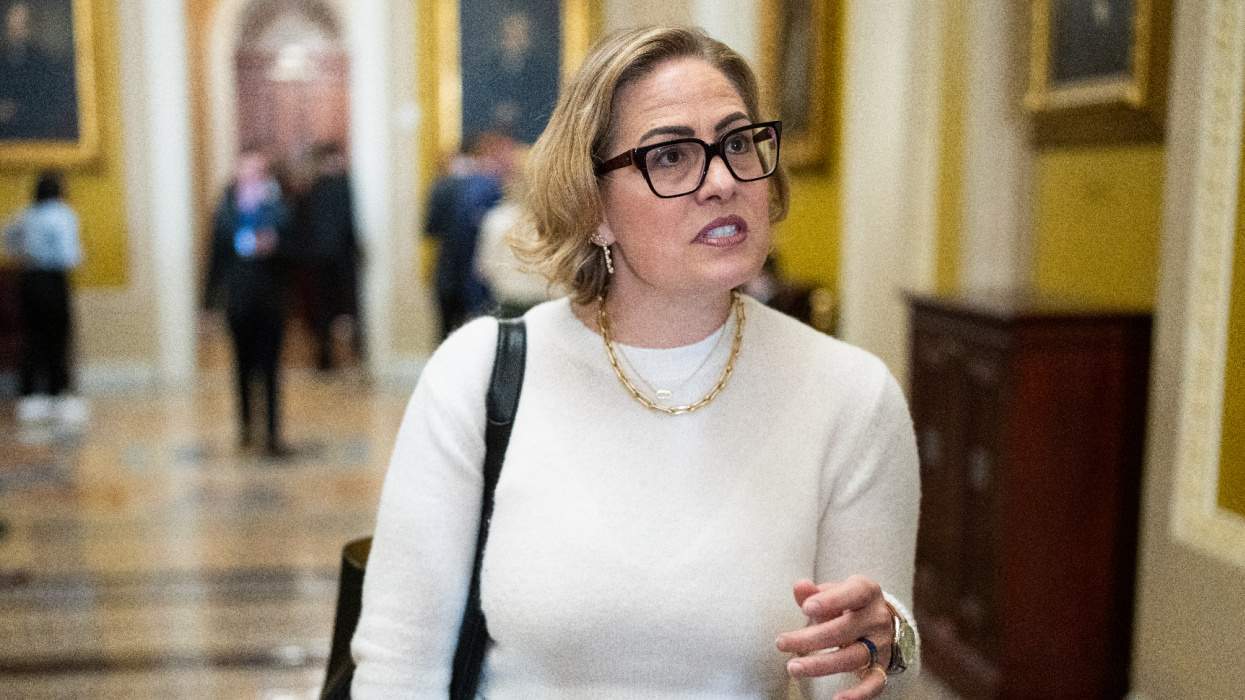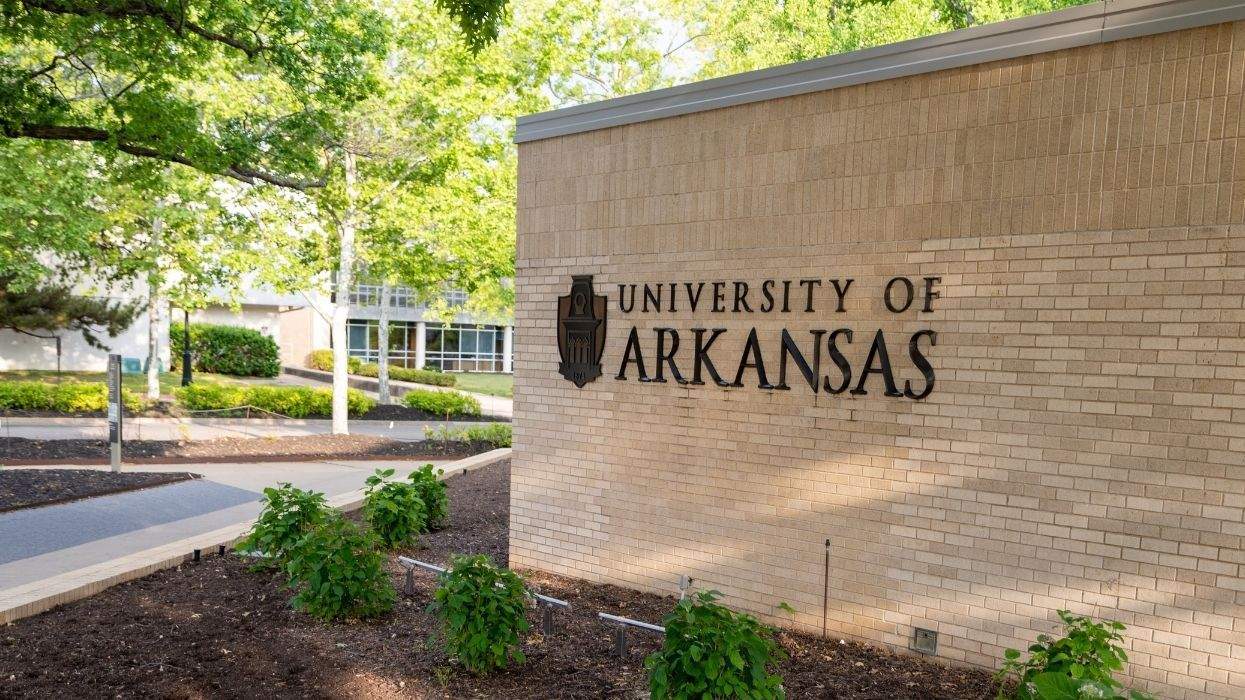On February 12, 2008, 15-year-old Lawrence King was shot in a classroom at E.O. Green Junior High School in Oxnard, Calif., by classmate Brandon McInerney. In the year since his death, the trial against McInerney has been a constant ebb and flow of postponements and appeals. King has since become the poster child for protecting LGBT children in schools -- The Advocate devoted a cover story to the life and senseless murder of Lawrence King, and in the days leading up to the one-year anniversary of his death, blogs devoted space to reflecting on what has been learned in the aftermath and how far educators still have to go.
A study by the Gay, Lesbian, and Straight Education Network released on Wednesday revealed that 90% of gay students have been the target of homophobic slurs, and 42% have been physically assaulted or harassed because of their sexual orientation or gender identity.
Prosecutors say that leading up to the shooting, King and McInerney engaged in their own ebb and flow of rivalry, exchanging barbs in the hallways, eventually leading to McInerney threatening King's life. According to prosecutors' statements, McInerney told one of King's friends, "Say goodbye to your friend Larry because you're never going to see him again."
As details about the case were released, the public learned that both boys had troubled pasts, with possibly difficult home situations. King lived at Casa Pacifica, a group home for abused, neglected, and troubled youths. Prosecutors say that McInerney, who was 14 at the time of the shooting, grew up with white-supremacist influences.
Prosecutors are pressing for McInerney to be tried as an adult, which is possible under California law, but defense attorneys are fighting to get his case heard before juvenile courts, where he could be held until age 25, if convicted. Sentencing in adult court could land him in jail for 51 years to life. He has pleaded not guilty to all charges.
In the days leading up to this poignant anniversary, Advocate.com spoke to a few people involved in Lawrence's life and the time after his death.
Vicki Murphy, director of development and operations for Casa Pacifica
We had a group of volunteers who came out from our local church, and they were helping us on our sacred space. It was designated for kids to go be quiet and not have staff hovering over it. Larry loved the idea of sacred space and was helping the volunteers one weekend to clear the brush, and they painted paver stones. One of the other kids helping out painted a stone that said "kill" on it, and a church volunteer asked Larry to fix it. He ended up painting over the stone with hearts and flowers. It was beautiful, but it was sad because it was the last Sunday before his life was taken from him.
Eliza Bayard, executive director of the Gay Lesbian and Straight Education Network
Once we learned of the tragedy and tried to do what we could to support students locally, we began to think about how, as a national organization, we could support localized efforts to mourn Larry's death and try to bring about positive change in his memory. We put up a site to organize vigils and learn about vigils that were happening locally to spread the word. This is happening again around the first anniversary, so our site is still up to facilitate local advocates coming together.
Maeve Fox, Ventura County assistant district attorney:
We have a preliminary hearing date set in March, but it's been continued numerous times, most recently due to a defense motion that was denied back in December. The nature of that motion was an attempt by the defense to get internal memoranda, if they exist, and/or a peek at the decision-making process regarding the decision to file Mr. McInerney in adult court. We oppose that motion. I really didn't see that there was any authority for it at all, and the court agreed with that position, and denied that motion.
Steven Elson, CEO of Casa Pacifica
We're not just a campus with an emergency shelter, which is the program that Larry was in. We also are the crisis mobile response team for child and adolescent psychological emergencies for the Ventura County. Ironically, we were called into the E.O. Green school to do trauma care and help process the incident there at the school. That staff is stationed off [Casa Pacifica's] campus, but it was an odd role for our organization to be dealing with the aftermath both on our campus as well as in the school. Here on the Casa Pacifica campus, it was just an incredible trauma. It was an overwhelming issue for us for days, stretching into weeks and even months.
We did do a memorial service as a Casa Pacifica community, including staff members who knew Larry. At the tree dedication, we had everybody gather, I made a couple of comments -- there were probably about 150 people standing around: kids, staff, and board members -- and his cottage where he lived, the boys in that cottage all took a shovel and shoveled some dirt onto the tree, and then the choir sang "Amazing Grace." I dismissed everybody for refreshments in the gym, but nobody moved. It was just incredible. Everyone just stood, riveted. There was a real palpable sense of tragedy, of community, of shared loss. Everyone was really just motionless for about two minutes.
Bayard
Once we learned of the tragedy and tried to do what we could to support students locally, we began to think about how, as a national organization, we could support localized efforts to mourn Larry's death and try to bring about positive change in his memory. We put up a site, Remembering Lawrence, to organize vigils and learn about vigils that were happening locally to spread the word. This is happening again around the first anniversary, so our site is still up to facilitate local advocates coming together.
Riki Wilchins, activist and author
I think the cold-blooded daylight nature of his murder certainly focused public attention on just how dangerous it is out there for kids who visibly cross gender lines. Makes me want to re-commitment myself to challenging gender intolerance and stopping gender related violence, particularly against kids, who are the most vulnerable members of society.
Murphy
This one particular boy was in a gang and looked pretty rough. He said, "I didn't always understand [Larry] or agree with him, but in the end we had his back, and we were afraid for him."
So then his clinician asked him to tell me what happened that week. He said, "A new intake came in. He was calling kids 'fags' and 'gay,' and I went up to him and told him we don't talk like that. That's not OK to talk like that. We lost one of our brothers last week."
I said back to him, "That is so powerful. That means that you got it, and you get the importance of what this was all about, and that Larry's death wasn't for nothing. Now you are the carrier of that truth, and you have to go out and you have to keep that message alive. For people to see someone like you say that is huge."
He said that he used to use gay slurs himself, and that he'll never talk like that again.
Bayard
The problem we have now across the country is that not enough schools have an enumerated policy, and not enough concerned adults are prepared to respond when these things happen. In our last national climate survey, more than 80 percent of students surveyed reported that adults, when present, did little or nothing to respond to anti-LGBT name calling.
Fox
Now the defense has filed a writ with the court of appeal -- I think it was last Friday, I'm not exactly sure of the date -- but what they're trying to press is that they're trying to get Proposition 21 undone, which is the extent of what they would have to get in order to get what they are requesting. [Proposition 21 was a successful California ballot initiative in 2000 granting prosecutors and courts latitude to bring juveniles as young as 14 before adult courts for felonies such as murder and home invasion robbery.]
Elson
We're not doing anything formal [for the one-year anniversary]. I've encouraged departments and individuals to take a moment tomorrow and do some of their own reflecting and thinking. That's all we're officially engaged in.
Bayard
When it comes to creating a climate of safety and respect, there are a few simple, bottom line things that schools can do. Chief among them, and perhaps the least controversial among them are having an anti-bullying policy at the school that is fully enumerated with a laundry list of things that are covered and clearly includes sexual orientation and gender expression, and that this policy be clearly communicated for the school community, an that all school staff be trained and prepared to handle that policy effectively, evenhandedly, and in a timely fashion. Schools must also track and report problems, so that they get a clear sense of the scope of the problem and how they're responding.
